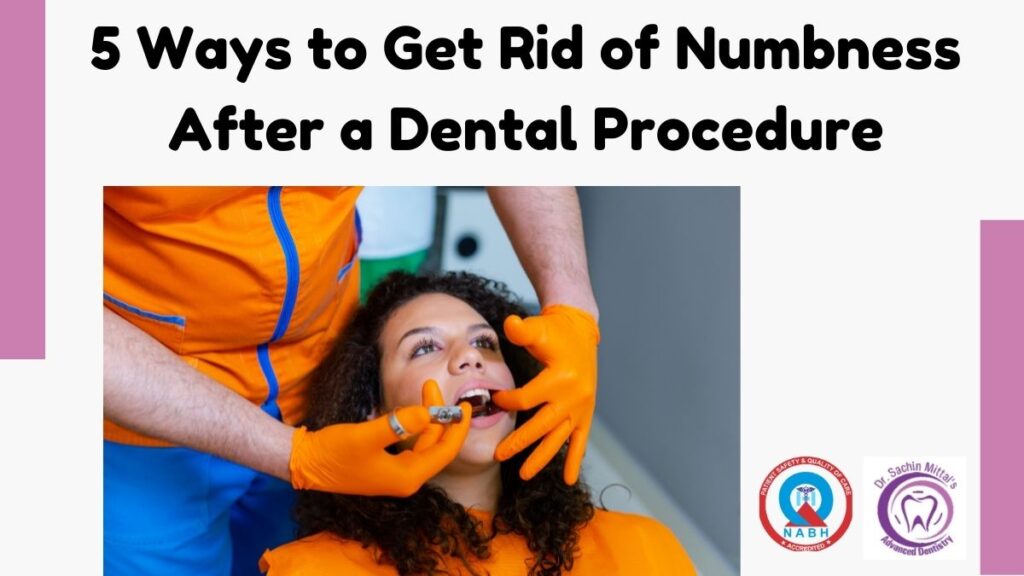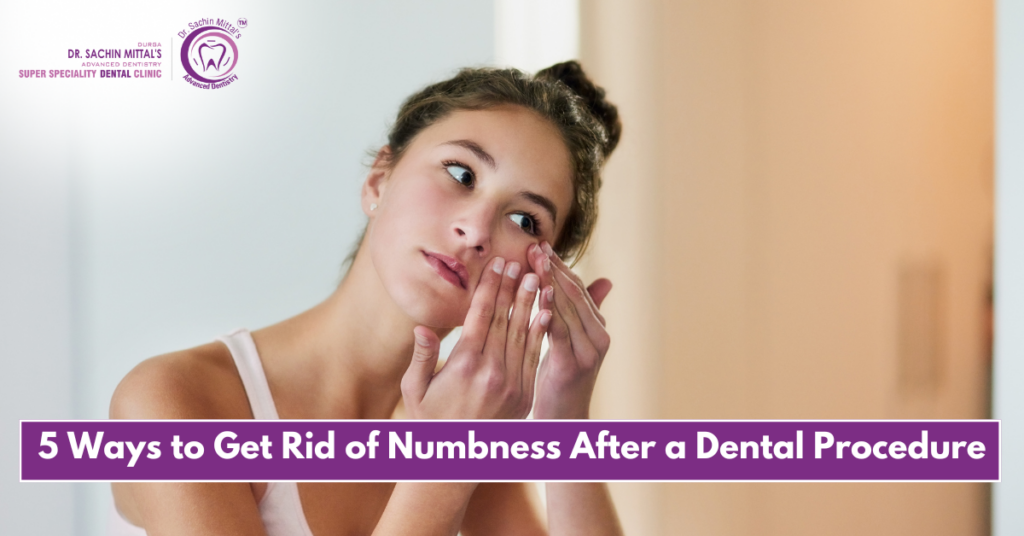A visit at the dental office to undergo routine filling, root canal or another procedure may require local anaesthetics to reduce pain and keep the patient from experiencing pain throughout your treatment.
In the majority of cases, the anaesthesia used by your dentist will cause the tooth to be numb for a period of 1 to two hours. The following three to five hours can result in your lips, face and tongue in a state of numbness and it can be a hassle when you’re trying to resume your normal routine within a short time after your appointment.
Being patient is the most popular method to deal with the numbness, as it naturally fades as time passes; however, there are some home remedies that can assist!

Massage Your Skin
If there is no swelling, apply a warm wrap to increase blood flow to the region. Alongside applying the warm compress, you can apply a gentle massage on your lips in order to heat them and also increase the flow of blood.
Avoid touching the areas directly. Always cleanse your hands before as well after you have massaged your mouth, lips and face.
Get Active
Consult your dentist to determine If it’s safe to engage in any physical activity after the procedure. A brisk walk an exercise bike or even doing some chores around the house can help decrease the feeling of numbness in a natural manner.
Activeness increases the circulation of blood within the body, which can help remove the anaesthesia from the site of injection. This energizing motion will allow your body to break down and process the novocaine you received in your treatment.
Take a Nap
When you’re taking a nap, which is not the same as being active, a nap helps to take your mind off the fact that some areas of your face and mouth aren’t feeling. Relax, relax and let the numbing sensation pass until the feeling wears off in a peaceful manner.
Ask For Another Injection
Some dentists use medicines that reverse any effects from general anaesthesia. This could mean another injection, a reversed injection could help in making the numbness go away more quickly than simply waiting for it to go away.
Reversal injections typically are the same amount, but many insurance companies won’t pay for the injection because it’s not medically needed.
Have Patience
Since various dentistry requires different levels of anaesthesia, there’s no standard answer to the length of time your mouth is in a state of numbness following a procedure. Furthermore, many other variables are a factor in the length of time the numbing effect will last, like your weight, height and the speed at which your body can absorb the anaesthesia.
What area of your mouth had to work is an important factor because the jaw’s bottom is a huge nerve block that regulates sensations across a larger area of your face.
Take your time allowing the anaesthesia to fade prior to presenting a large appearance at the office, going on an intimate date with your romantic partner, or having an enormous meal. You’ll be feeling at ease in no time.
Make a Follow-up Dental Appointment
Rid of Numbness, Although a local anaesthetic in the aftermath of an oral procedure may cause the lips to feel numb for two or three hours, persistent feeling of numbness could be a sign of a serious issue.
If you’ve been waiting for five hours and you’re still experiencing numbness in your lips following the placement of a dental implant or filling or extraction of wisdom teeth, or any other dental procedure, you should contact your dentist.
A follow-up appointment may be needed as the numbness that remains after the procedure may indicate nerve damage or even an abscess.

